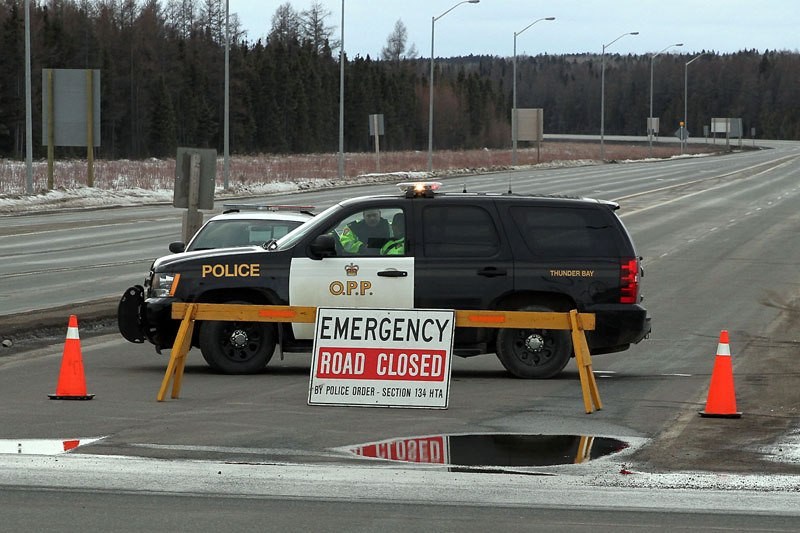Provincial police are growing increasingly concerned after a significant increase in fatal highway crashes through the first six months of this year.
Since January, provincial police have investigated 12 fatal crashes, resulting in 14 deaths, on highways between Kenora and Marathon.
“It is very concerning seeing these numbers and especially seeing these numbers from last year. Our goal is to see no fatalities on the road and that’s why we as the OPP want to convey our message about road safety so that people driving through our region can take these things seriously and prevent these collisions,” OPP Provincial Const. Matthew Foster.
During that time period last year, provincial police responded to three fatal collisions which resulted in four deaths. The five-year average for year-to-date fatal collisions has been four.
In a news release issued late last week, police said there has been an increased number of fatal collisions so far this year across the entire province, and pointed to factors including speeding, careless driving, driver inattention, driver fatigue, alcohol and drug consumption, and lack of seat belt use.
Although he didn’t elaborate on the dangers of impaired driving specifically, Foster did comment that anything that causes in-attention to the road is dangerous and equally unsafe.
Driver fatigue isn’t a factor that is normally spoken about, but one that drivers should take seriously, he said.
“It’s something to keep in mind when you are travelling long distances like you do in our region, that driver fatigue can be a factor,” Foster said.
Foster said driving requires all senses to be alert and long-distance driving takes a toll on the body and after a while, fatigue will settle in.
"If your fatigue is increasing as your road trip gets longer, being able to stay awake could become an issue," he said. "So, if you are getting tired, there are spots to pull over to rest. There are little towns in our regions to pull and take a rest at.”
Considering the number of drivers that are travelling long distances across the region at all times, Foster advised that drivers should be aware of designated rest areas along the highway and other places to make a stop.
As for general safety tips, Foster advised that drivers should ensure that there are no mechanical problems with their vehicles and that the gas tanks are full between stops.
“When you are going through towns, depending on the time of day, some towns don’t have gas stations that are open,” Foster said.
Drivers could run into issues such as running out of gas or mechanical failure which could result in collisions. As well, a vehicle’s tire falling off due to unsecured lug nuts can result in the vehicle veering into oncoming traffic or into the ditch.
Drivers are also urged to allow for adequate space between vehicles. Foster said that a driver's stopping distance decreases the faster the vehicle is travelling. People travelling at an unsafe distance behind vehicles that stop suddenly can result in a collision.
“Doing anything you can for you to be safe, gives you much more time to react at a potential careless move from another motorist on the road,” Foster said.
